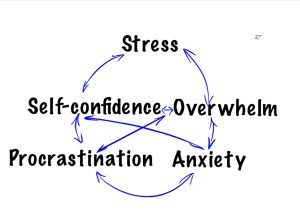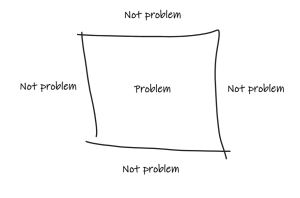Neurolinguistic programming, or NLP, is a highly refined suite of tools and techniques, encompassed in a set of beliefs or presuppositions, that work on both the conscious and the unconscious levels of thought so as to help people live more successfully.
It provides a fast and reliable way of gaining greater control over your mind and, therefore, your results.
To understand the various aspects of NLP and how they fit together, it is helpful to briefly learn how it began.
In the early 1970s, Richard Bandler, a masters level student of information sciences and mathematics gained the support of Dr John Grinder, a professor of linguistics, in a project that he devised.
This project involved studying the work of three world-renowned psychotherapists, with the aim of understanding how they achieved the amazing results that they were able to obtain when others were unable to do so.
It was hypothesised that a detailed analysis of the way they worked could create models that could be used by other psychotherapists to achieve similar successful results.
The psychotherapists chosen for the project were Virginia Satir, a very successful family therapist and the developer of Conjoint Family Therapy, Fritz Perls, a noted psychiatrist, psychoanalyst and psychotherapist and the founder of Gestalt Psychology, and Milton H Erickson, a renowned psychiatrist and psychologist who specialised in medical hypnosis and family therapy and was responsible for the advancement of Clinical Hypnotherapy.
To understand the work of these elite practitioners at a deep level, Bandler and Grinder studied what actually transpired in the minds of the patients at the moment the change occurred. They sought to discover what specifically caused the change and how they could replicate it more quickly and efficiently.
They also examined what was occurring in the minds and behaviors of the therapists to enable them to have such great success with their patients, bringing about change in a matter of minutes or hours rather than years as with previous therapies.
As a result of their observations, they were then able to describe the exact step-by-step approach that these therapists used and teach them to others to achieve similar results.
Their work lead to a greater understanding of the processes of human thought; what is actually going on when we think in the step-by-step activity of thinking.
This also involved an understanding of the way our thoughts are informed by the inputs of our five senses: our sight, our hearing, our sense of touch, our sense of taste and our sense of smell.
Bandler and Grinder discovered that these three experts shared similar beliefs about human nature, which contributed to their success. These beliefs became operating principles for NLP, called “Presuppositions”.
Examples of these include:
- there is no failure, only feedback;
- the meaning of the communication is the response it elicits;
- every behaviour has a positive intent;
- if what you’re doing is not working, do something different
- etc.
Because of its therapeutic and linguistic origins, NLP provides ways of dealing with personal problems that many of us have.
The name neurolinguistic programming arises from the following words and concepts:
Neuro – this relates to the way in which we experience the world through our senses and how we translate this sensory information into conscious and unconscious thought processes. These thought processes in turn affect our physiology, our emotions and our behaviour.
Linguistic – refers to the way in which we use language to understand the world live in and to communicate this experience to ourselves and others. Using NLP, we consider how the words we use reveal our unconscious thought patterns and affect our behaviour. Similarly, this can be used to help understand and ethically influence the behaviour of others.
Programming – relates to the way in which we mentally code or represent experience. This is the personal programming that we use to learn, evaluate, solve problems, make decisions, obtain results etc. NLP has techniques of reprogramming this mental coding to get outcomes that are desired.
Because of its therapeutic and linguistic origins, NLP provides ways of dealing with personal problems that many of us have.
So NLP:
- provides a way of modelling human excellence to foster personal achievement
- provides a powerful and practical approach to personal and organisational change
- provides insight into the art and science of communication and tools to use this insight constructively
- helps you understand what makes you and other people tick
- provides a way of influencing others with integrity
- provides a way for you to get the results that you want in many areas of your life
- provides tools to help you overcome personal obstacles that have been holding you back
NLP is a large and rapidly expanding body of knowledge, techniques and practices, studied and practised by many hundreds of thousands, if not millions, of people, around the world. Its aim is to facilitate the achievement of excellence in the personal, recreational and work-related aspects of our lives. Its tools are also powerful resources for businesses and organizations, regardless of size











